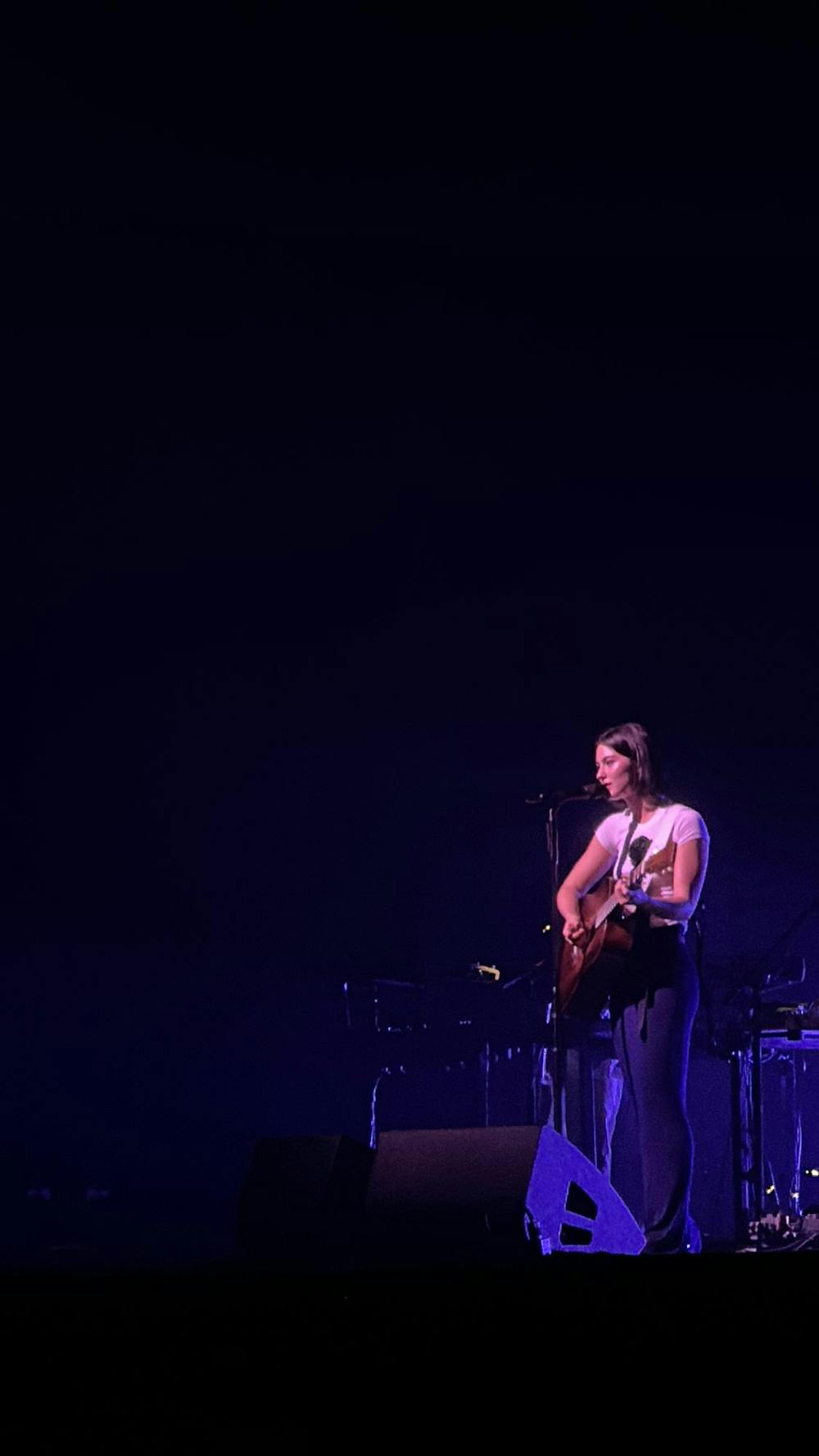A few weeks ago, I went to a Gracie Abrams concert in Chicago. It was sold out, lively and political.
When I first approached the pit, an election volunteer, wearing multiple election pins, asked, “are you registered to vote?”
I responded, “yes,” and continued to the barricade, rushing to get a closer spot for Abrams and her opener, ROLE MODEL. For the rest of the night, and especially between sets, I watched volunteers ask attendees the same question. Most fans either said “yes” or acknowledged they weren’t old enough to vote.
Later in the show, Abrams mentioned her tour’s mission to spread political awareness, specifically on how her fans should vote to preserve their own individual freedoms, which she has been vocal on for years.
In an interview earlier this year with the Hollywood Reporter, Abrams spoke on the election, noting that “one of the reasons that I’m most stoked to be on the road right now is the ability to speak face-to-face with the people that will have a massive say in the way that this election goes, you know what I mean? Like young people really need to show up, so I think all of us doing our part to make sure that happens is crucial.”
The concert, and knowing Abrams’s history of political activism, made me think if celebrity endorsements actually carry significance, considering the polarization and new age of media that distinguishes the 2024 election from others.
Abrams’s audience is predominantly Gen Z, who comprise the entire 18 to 24-year-old cohort of youth voters.
Because of Gen Z’s strong social media presence, we are also likely to engage with celebrity endorsements online. However, the most effective online endorsements are ones that Gen Z deems as authentic and genuine — typically reinforced by casual yet serious rhetoric.
Abrams isn’t the first celebrity to voice her values and beliefs. Other celebrities have done the same: Taylor Swift, Olivia Rodrigo, Mark Cuban and Bruce Springsteen have all endorsed Kamala Harris. Harrison Butker, Elon Musk and Nicky Jam have endorsed Donald Trump.
These endorsements aren’t groundbreaking, but they’re representative of the new age of celebrities authentically engaging with their fans, bolstering visibility for their beliefs. Any celebrity can turn to the internet with their phone and upload on Instagram, post on X or make a video of themselves. In turn, their fan demographic consumes more content in their political light.
Little data is known on how much political endorsements sway celebrity-to-candidate turnout (due to celebrities protecting their own engagement statistics), but the trend of political endorsements is decades long: Babe Ruth, Frank Sinatra and Judy Garland voiced their opinions in the early 20th century. From then on, other public figures have followed suit.
However, the technology’s accessibility, allowing anyone to access nearly any celebrity post, has boosted a stronger sense of connection between public figures and their fans.
In a 2024 Harvard data study, researchers found that influencers, which also represents celebrities with strong social media presences, have “the largest impact … realized by those influencers who are personally motivated and passionate about the cause at hand. Voters respond better to authentic messaging from influencers that conveys personal passion and doesn’t require a high production value.”
The results of celebrity endorsements in recent elections have been shown to widen the electorate. For example, after Taylor Swift posted on Instagram in 2023, a voter registration site saw an over 1,000% increase in traffic. Over 35,000 new voters registered for an off-year election.
So when Abrams took the stage, in front of hundreds, she participated in a much larger call to action — for celebrities to sustain a history of sharing political beliefs with the aim to mobilize fans before a highly contested election nearly three weeks away.
Redmond "Reddy" Bernhold is The Observer's opinion editor and a senior studying biochemistry and journalism. He originally hails from Minster, Ohio but calls Siegfried Hall his home on campus. When not writing, he explores South Bend coffee shops and thrift stores. You can contact Reddy at rbernho2@nd.edu.










